Another Code: Recollection Review
Nintendo Switch
Another Code: Recollection brings a more polished experience of the first two games in the series.
Reviewed by Rayan on Jan 22, 2024
Japanese adventure games have always emphasized dialogue, character development, and graphic storytelling; these elements gave rise to the full-blown visual novel genres. However, all of Japan's video game creation adheres to these design standards. Many, if not the vast majority, of Japanese video games use these ideas and techniques.
They just have this one flavor to them. Some might find it perplexing when games with a lot of talking are called visual novels, even when they include far too much action to be considered such. Another Code: Recollection, developed by ARC System Works, is one of those games that blends into this genre but has a decent amount of history if you're familiar with the Another Code series.
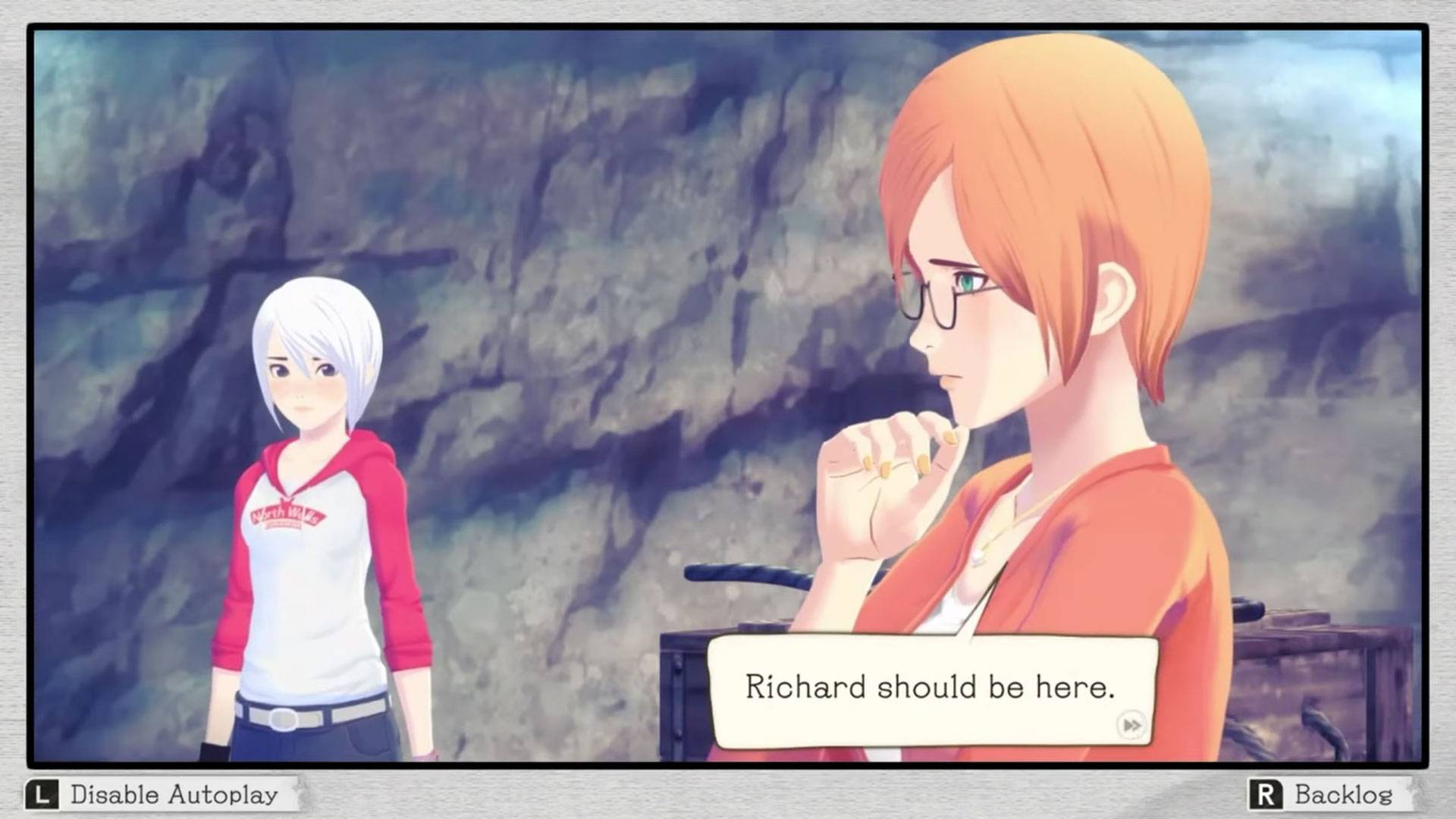
For starters, Another Code: Recollection bundles together Another Code: Two Memories and Another Code: R – A Journey into Lost Memories. Journey into Lost Memories, the DS sequel, was not made available in all regions like the original game, Two Memories. Since it was exclusive to the Wii in Japan and Europe, many fans were ecstatic about Another Code: Recollection's international release.
Knowing that Two Memories was formerly referred to as Another Code: Two Memories in North America is essential if the game does not sound familiar. But Another Code: Two Memories was released in 2005, and it's been almost twenty years since this new entry. So, besides the returning fans, ARC System Works surely has thought of more newcomers to this series.
And the newcomers may not get all the excited because - while telling a very gloomy tale, Another Code: Recollection uses the platform's gimmick for puzzles and other activities. The plot does play a key role. At the same time, these games have a fair number of puzzles and exploration; the narrative is generally told through conversations and other situations, which makes them different from popular Western adventure games.
This gameplay style is more separated from the plot, similar to the Japanese way of playing video games—emphasizing narrative, reading, and talking. This attitude set early Japanese RPGs apart from their Western equivalents, developed into its own subgenre, and is today widely considered a dominant style in the genre.
Another Code: Recollection narrative revolves around Ashley, a young girl surrounded by distress and mysteries. Ashley has a complicated history, considering her father was a memory specialist. Because of the widespread belief that her parents died after they vanished in 1994, her aunt Jessica has been raising her ever since. With her fourteenth birthday quickly approaching, Ashley's life takes an expected turn. She is now troubled by frequent dreams, which may be a sign of a terrible event she experienced as a child.
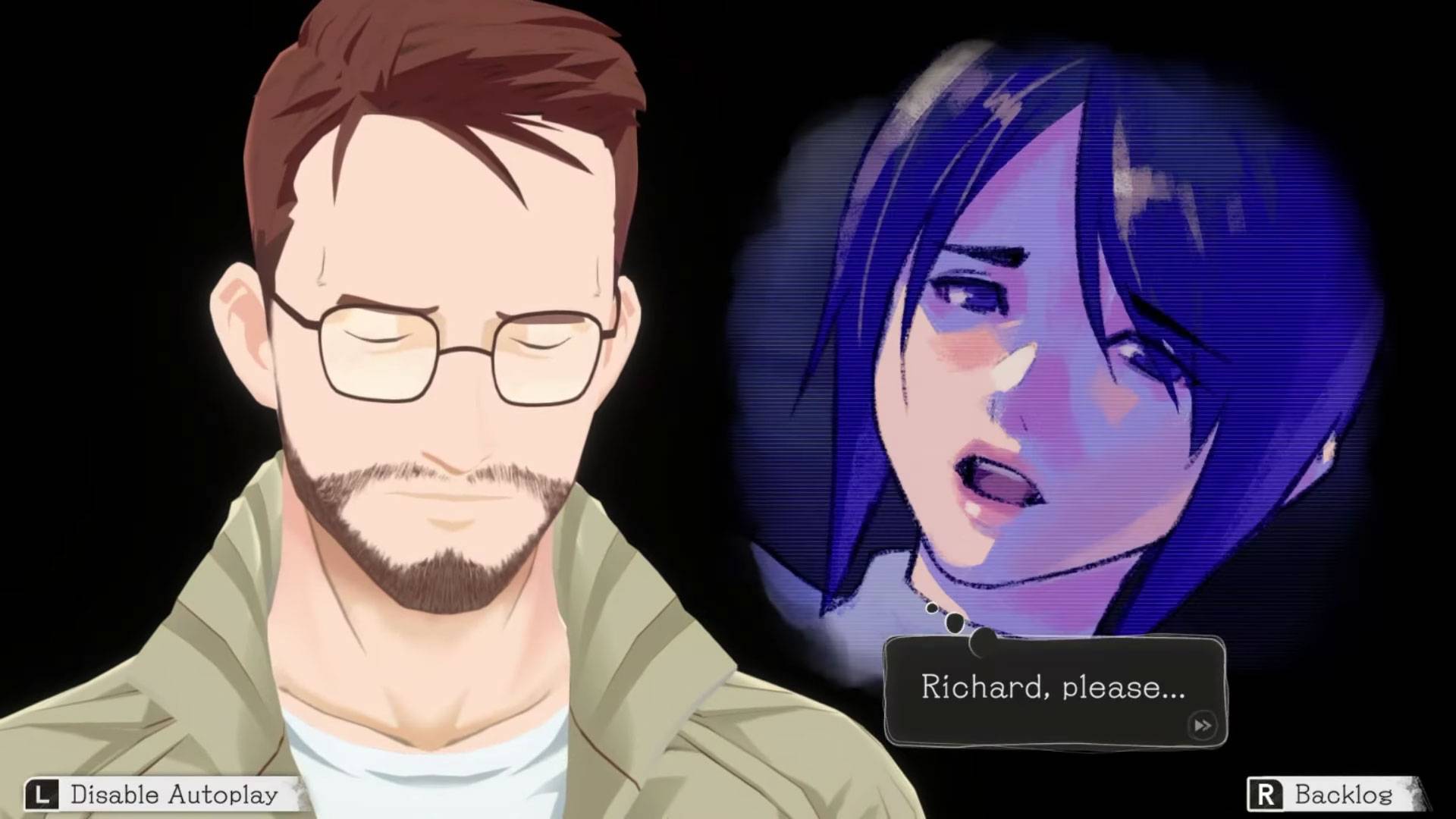
Suddenly, a peculiar delivery arrives, containing a card and a device known as DOS, designed to respond exclusively to her. Additionally, a letter directing her to Blood Edward Island to visit her father is sent in this package. With our Aunt Jessica Ashley's arrival, we go to the isolated island of Edward Island, where she is hoping to find her father. But when they get there, her dad is not there. After Jessica disappears for two days, Ashley is left to figure out what happened.
Meanwhile, a specter named D makes an appearance to Ashley. In reality, D is dealing with his own problems while he wants to find out what happened to him before he died, but he has no memory of it. Except for a few shared elements like settings or the encounter with the young specter D, whose fate you discover, nearly everything else is new here. There will also be new cutscenes with significantly more elaborately staged comic situations.
You play as Ashley, the pursuer, instead of taking a top-down perspective of many locations in Part 1, including the Edwards family house. Nevertheless, the majority of flashbacks merely consist of a series of still images that only serve to slightly accentuate the tension in certain instances. There's a new speech output that you may use, and it includes certain dialogue bits without music.
Returning fans would see Another Code: Recollection is a port of the original two games. It has brand-new voice acting and graphics that are head and shoulders above the competition. This game is reminiscent of a mystery novel in that you must use the main character's memories to uncover secrets while exploring the environment and solving puzzles.

So, quite a few cutscenes play when the game starts, and all of them, nevertheless, can be replayed using the log. This is something the newcomers to this series might find very handy. Any and every text from your interactions with items and puzzle-solving attempts is preserved in the game's chat log, so you can review every word said.
Combining the genres—visual novels, adventures, and puzzle games—makes for an unforgettable experience. In this game, the story is more important than any intense gameplay, while chatting with other players or exploring the gaming area takes up most of the time. Sometimes, you're required to finish certain puzzles to go forward.
It's pretty much your standard point-and-click adventure, pulling a lever there, turning a switch here, entering the appropriate password, etc. In most instances, the challenges are not overly challenging, preventing you from becoming frustrated and giving up. And every time you come across one of these challenges, you'll be filled with a sense of satisfaction for completing them. But don't get too excited yet if you're a puzzle lover.
Because the gameplay isn't particularly complicated, you can only explore a few little regions in this linear game environment. The main goal appears to be providing the gamer with an engaging story and frequent puzzles. Even though there wasn't a challenging puzzle, a handful necessitated careful consideration. Conversely, you won't find the puzzles hard. Combining components and other more complex maneuvers is never hard in particular.
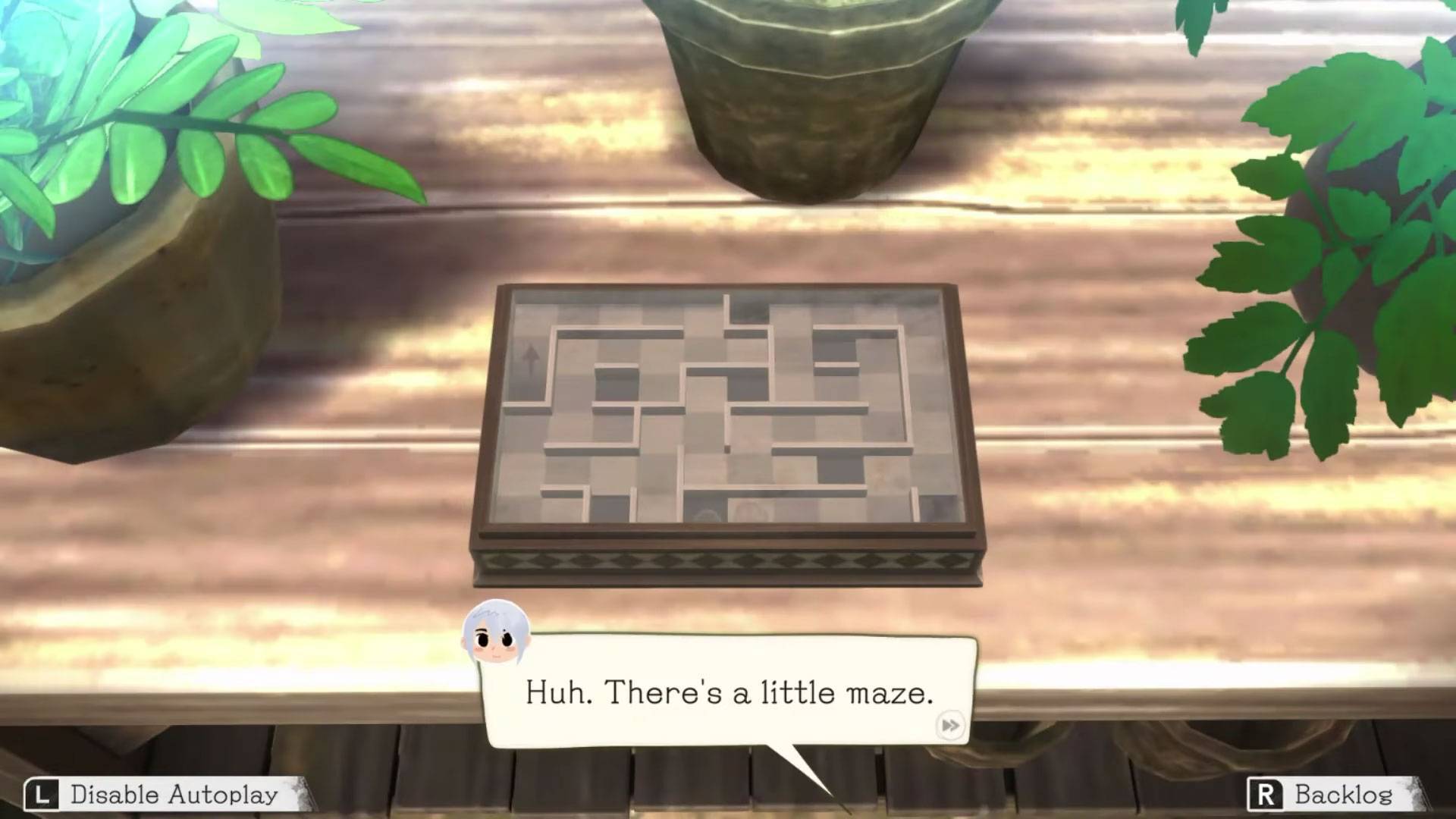
You won't have to spend more than a few minutes on any activity. Reading all the text thoroughly will show you the route, and if you become confused, the arrow will point you in the right direction. The truth is that I was thinking there would be more challenging challenges. If you look closely enough, you may even figure out the hidden phrases in the backgrounds.
The gameplay of Another Code: Recollection saw a substantial evolution compared to its original DS edition. While this new design is excellent, the old one was entirely top-down. The second game for the Wii continued the prior shift to a third-person perspective. Here, you can direct Ashley's every motion, including her sprints and interactions with the environment. You can also consider using the DAS gadget to look for things. Additionally, DAS fulfills several other purposes.
It records the events as they unfold, showcases the characters, and gives a synopsis of their interactions with Ashley. The gameplay will heavily rely on this multi-functionality; for instance, the camera feature will play a vital role in solving riddles. Based on what I've observed so far, players are frequently tasked with collecting data and information, which makes the DAS a priceless tool for recording and organizing this data in one convenient spot.
Still, many complimented the original game's world-building and characters, even as some highlighted concerns about the game's intended age group due to its relatively simplistic puzzles. Interestingly, many players had issues with the initial game's length, citing a completion time of about 5 hours. There were complaints about the tempo in the first game, but Cing, the developer of the past two Another Code games, fixed it in the sequel, with a projected playtime of fifteen to twenty hours. In my opinion, that time jump will be well-received by fans of the show.
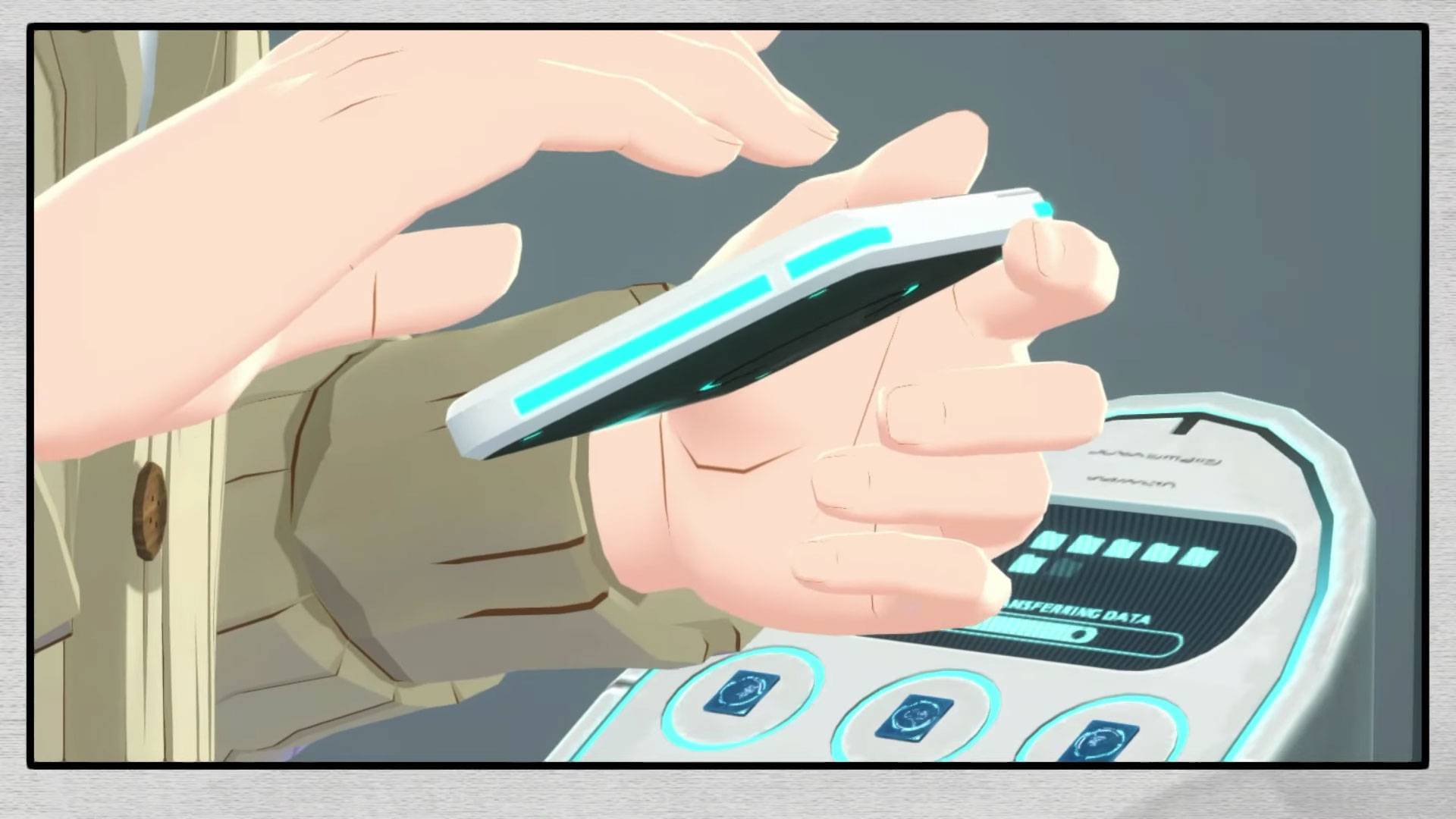
Since it's structured similarly to a mystery novel and the plot is captivating, Another Code: Recollection is perfect for the Nintendo Switch because of its stunning visuals, immersive locations, and charming cutscenes. The settings are beautiful, and everything about the art style is spot on; it's gorgeous. While it may be impossible to halt cutscenes, you can review all of the words in the log at your leisure, so you can study them while watching the cutscene.
Apart from the cutscenes, you can go through the rest of the dialogue at your own will since it is all urged to continue; part of it is even voice-activated. Most of the plot is voice-acted, yet there are a few exceptions, such as when you're pondering, staring at an object, or listening to a character's extra lines of dialogue. There isn't a voice for every line of conversation in the game, but it appears frequently and is incorporated in every cutscene.
Although I must admit that I was initially concerned about one part of the game—the camera control—which is somewhat near Ashley; it blocks off part of the landscape, and I wanted a little more distance to take in more of my surroundings and search for hints. Not to mention how painfully sluggish the camera's X and Y axis movement is. Fortunately, I figured out early on that the camera speed was set by default to a slow 20 out of 100.
The responsiveness was greatly enhanced by increasing this value to around 80. Since it was originally released for the DS, the lack of touchscreen capabilities was another element that caught me off guard. I expected we could engage in puzzle fire touch interactions; I just wanted to let you know that's not the case.
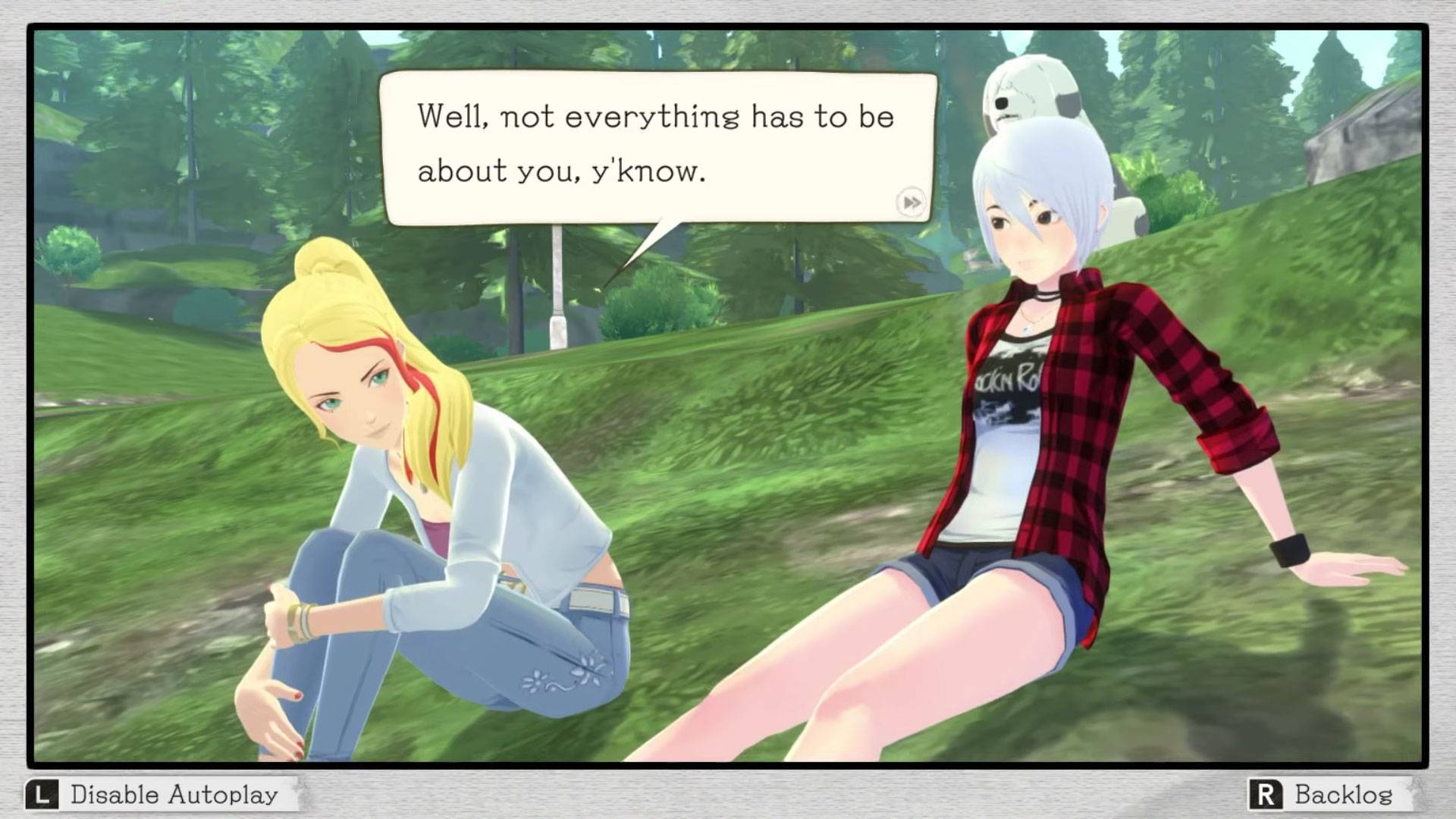
Even if it has its flaws, fans of the series will love Another Code: Recollection. As someone who is just starting out, this game won't disappoint. Despite its great promises, with this series in particular, I wonder why it vanished after those two entries. Nonetheless, we think Another Code: Recollection might be fantastic for lovers of the franchise. The gameplay is fascinating without being very taxing; it's an exploration with narrative-driven and puzzle-moving components. Clues in a game might lead you to other areas and even guide you through various scenarios.
Everything about the soundtrack and the set design is top-notch. Fans of the original should be pleased to hear that, thanks to a fresh viewpoint, locations are now widened and made entirely explorable, promising much more content. Since there isn't much of a learning curve, this is perfect for genre enthusiasts who haven't played any similar game. If you could not play the first two games in this series, Another Code: Recollection delivers a way to experience them in a more polished way.
Senior Editor, NoobFeed
Verdict
Another Code: Recollection's soundtrack and the set design is top-notch.If you could not play the first two games in this series, Another Code: Recollection delivers a way to experience them in a more polished way.
70
Related News
No Data.

